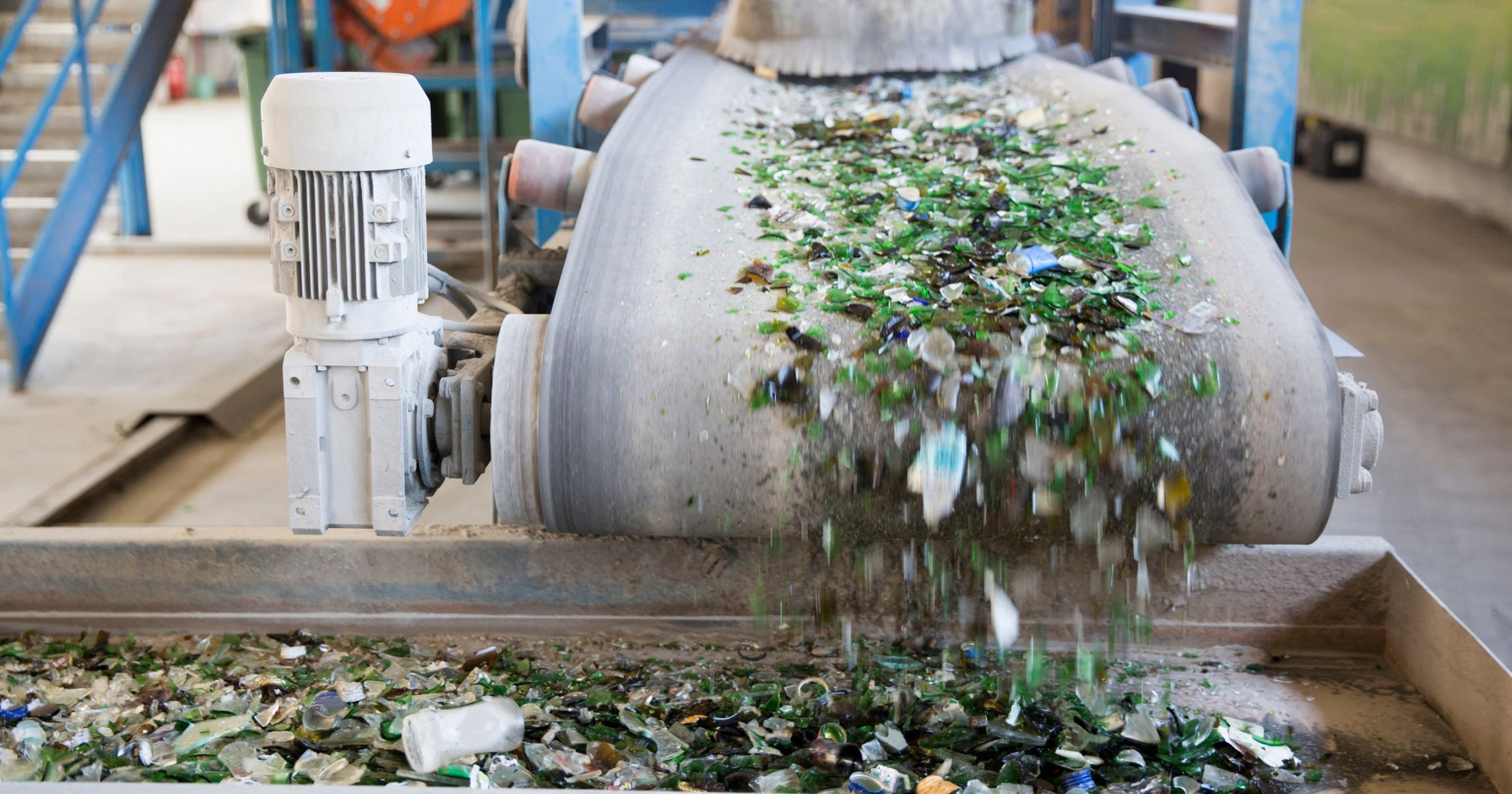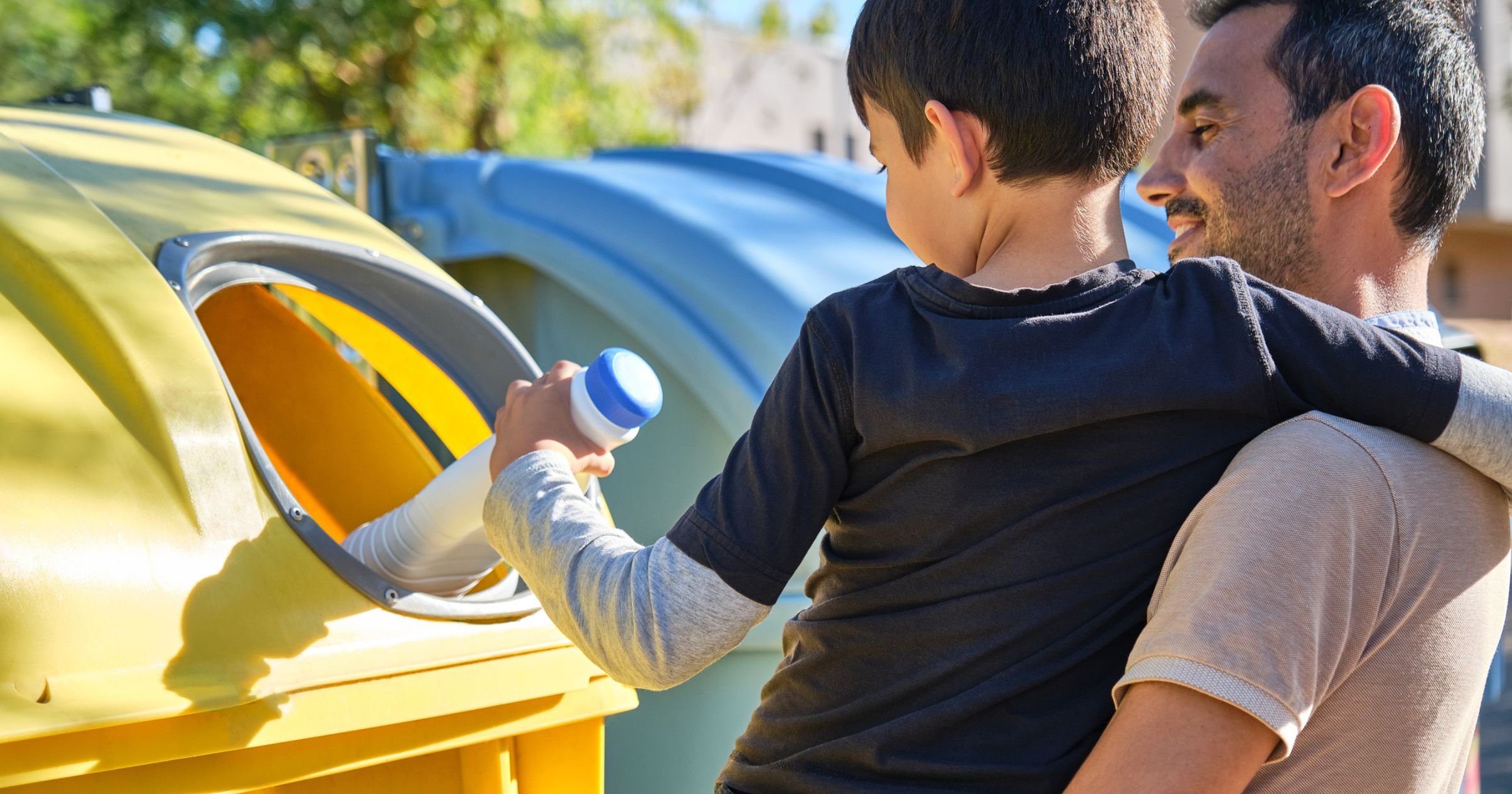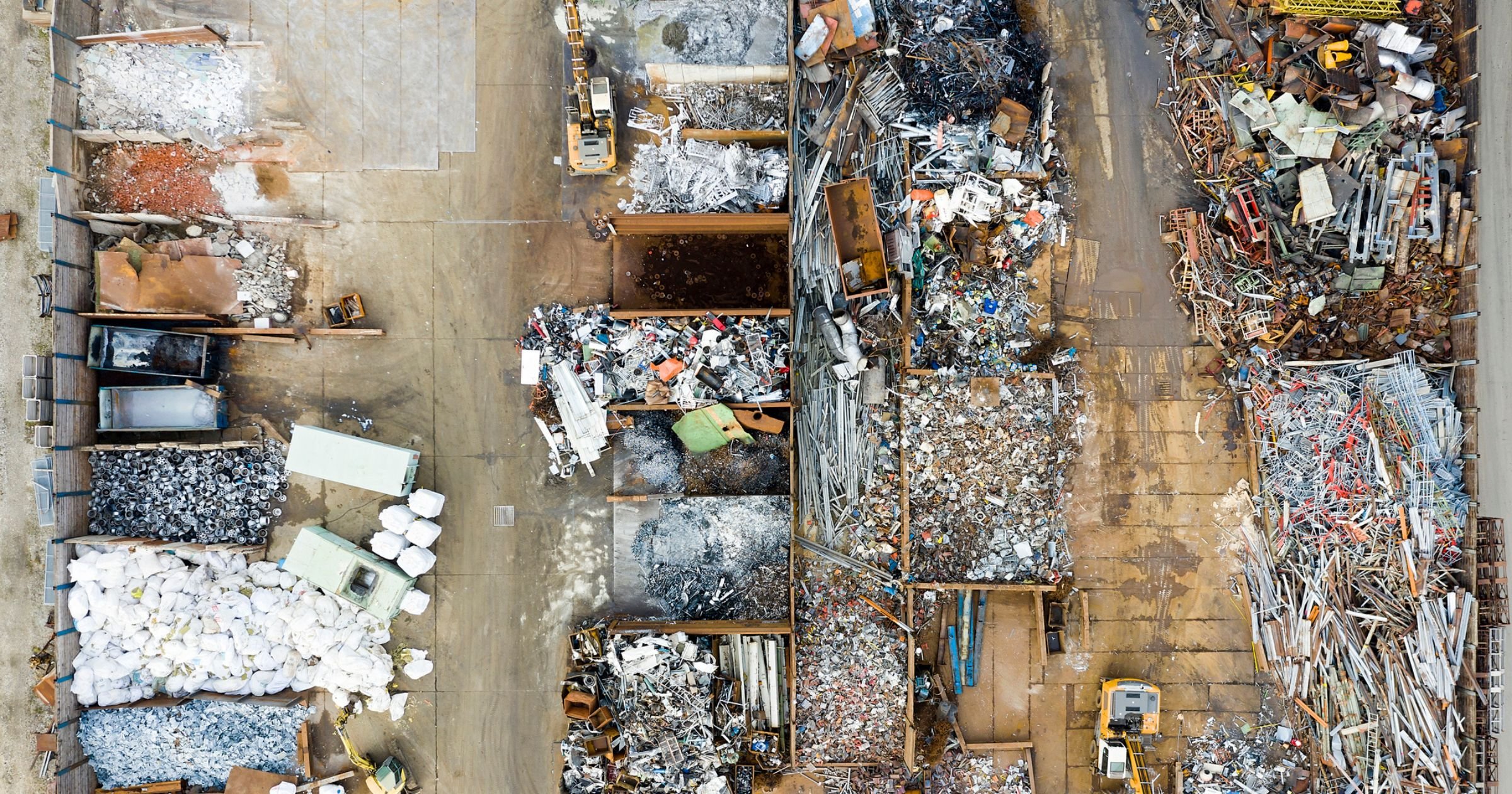
Tamara Davison
Tamara Davison is a journalist who specializes in sustainability and the environment. Reporting from around the world, she's seen firsthand the direct impact waste is having on coastal communities and our oceans. As a diver trained in ecological monitoring, the changes Tamara has seen in marine habitats inspired her to action. She's previously written for The Guardian, The Independent and the Evening Standard. She's also produced environmental documentaries for EuroNews.
Recycling is one of the most impactful ways to support a circular economy, preventing waste by keeping it in circulation.
In fact, around 85% of people agree it’s essential to recycle when possible (World Economic Forum, 2021). While this suggests we’ve made massive strides in global recycling initiatives, there’s still some way to go.
Everyone has a role in improving how we recycle, from homes to businesses and industries. So here are 21 facts that can help enhance your journey with recycling.
Do you want to enhance your business's sustainability practices? Check out our guide on Capturing the Conscious Consumer to discover the benefits of introducing a sustainable strategy and how CleanHub can help you transition.
What’s on this page?
01 | Recycling facts: The key takeaways02 | Top recycling facts you should know about
03 | Summary
Recycling facts: The key takeaways
Recycling has already had a positive impact on our planet — but there’s still a lot of room for improvement. Significant hurdles exist when implementing recycling systems and encouraging people to get involved.
Here are the key takeaways on recycling:
- Recycling requires considerably less energy than creating new products, saving 95% of the energy used to make new aluminum cans and 75% of the energy needed to make plastic bottles. We can reduce emissions, save natural resources, and drive down climate change just by recycling more.
- US recycling rates grew significantly between 1960 and 2017, from 6% to 35%, according to the Environmental Protection Agency (EPA). While still on an upward trajectory, this level of growth has slowed in recent years.
- More than three-quarters of waste in landfills worldwide could have been recycled, according to waste management specialist Rubicon. This reveals plenty of room for improvement in existing recycling practices.
- Four out of five people recognize the crucial importance of recycling, but many want more support in actually doing so, according to a World Economic Forum (WEF) report.
Top recycling facts you should know about
Recycling is crucial to facilitating a more environmentally sustainable world. We can do it in our homes, businesses, and communities. Here are the top 21 facts that you need to know about.
1. The first documented instance of recycling took place almost 1,000 years ago
Recycling may seem like a modern response to recent environmental challenges, but the practice has a long history. In fact, the first documented account of paper recycling came from 1031 in Japan.
At the time, people reused waste paper to conserve limited supplies. The early adoption of recycling practices suggests there’s always been a long-standing awareness among humans of the value of managing resources.
2. Around 75% of all waste can be recycled
The Environmental Protection Agency (EPA) estimates that around 75% of all waste in the US can be recycled — yet the annual recycling level sits at around 34%. This trend isn’t unique to the US either, with the latest figures showing that the UK similarly recycled a lowly 44.1% of waste in 2021.
It highlights the amount of unnecessary waste gathering in our landfills and suggests there’s scope for scaling recycling practices to ensure waste gets handled correctly. While there’s plenty of potential, recycling requires improved infrastructure, processes, incentives, and education.
3. Just 8% of raw materials consumed in 2021 were recycled
The Circularity Gap Report said that in 2022, just 8.6% of raw materials returned to our economy after initial use. That means that over 90% of raw materials — from cotton and wood to crude oil — go to waste despite having the potential for reuse through recycling.
Even more alarmingly, the percentage of raw materials returning to the economy has dropped since 2020.
4. Recycling is one of the 5 ‘Rs of waste management’ (but it shouldn’t be the priority)
Most of us are familiar with “refuse, reduce, reuse, repurpose, recycle,” the 5Rs of waste management. Interestingly, these practices also have a hierarchy, with recycling at the top of the pyramid.
This means recycling is identified as a last resort in waste management. We’ve seen a lot of focus on recycling, but for it to be as impactful as possible, businesses and individuals must first aim to reduce consumption and optimize reuse.
5. We consume resources 1.6 times faster than the planet can regenerate
The World Wildlife Fund has found that humans consume natural resources — from food sources to forests — 1.6 times faster than the planet can regenerate. It means we’re living off the equivalent of almost two earths, essentially weakening our planet.
Recycling is crucial to addressing this overconsumption as processes require less energy and fewer natural materials, generally promoting a more sustainable approach to consumption.
6. Around 40% of waste in the EU is recycled
According to Euronews, around 40% of waste in the European Union was recycled in 2020. However, recycling rates also varied depending on the country, with Romanian authorities recycling just 5% of garbage while Italy recycles 83%.
A combination of reasons may impact this, including a lack of recycling facilities and inconsistent education about the value of recycling.
Once considered to have the world's highest recycling rate, Germany has recently slumped in the recycling ranks. It also generates the highest volume of waste in the EU, producing 402 million tons in 2020. France comes second, yet still produces considerably less waste than Germany, generating 310.4 million tons in 2020.
7. Many nations ship recyclable waste to foreign countries with poor waste management
In 2021, Germany exported 734 thousand metric tons of plastic waste to other countries — the highest rate in Europe. Many countries ship their plastic recycling overseas with the aim of other nations eventually processing the recycling waste. The problem is that this waste is often mismanaged.
Other countries, such as the UK, have done the same thing. Greenpeace revealed that half of the UK’s recycling exports get mixed with materials that are hard to recycle.
At the same time, investigations also found plastic recycling being dumped and burned at illegal landfills in overseas locations like Turkey.
8. The rate at which we recycle plastic is declining
Plastic pollution is one of our planet's most crucial problems due to its adverse impacts on our environment, wildlife, and public health.
There are many types of plastic, but most can be recycled or reused in one way or another. Despite this, experts estimated that the US recycled only about 6% of its plastic in 2021, marking a decrease from the 9.5% reported in 2014.
Despite recent innovations in plastic recycling, implementing them isn’t always easy.
9. Roughly 25% of people don’t know how to participate in recycling programs
A survey of 11,000 people worldwide, conducted by the World Economic Forum, found that 25% of people don’t know how to participate in recycling programs, limiting their recycling ability.
It's not solely the responsibility of local authorities to improve this, but clear communication on a national scale can help individuals better understand how to do their bit.
10. Two billion people around the world don’t have access to proper waste management
Even if people want to get involved with recycling, a lot depends on your location around the globe.
A staggering two billion people don’t have access to effective waste management, meaning they face significant barriers to disposing of or recycling any waste they produce.
Most of these people are based in low-income nations that don’t have the funds to implement modern waste disposal infrastructures. Instead, many families are left with the option of either burning their waste or discarding it in the open environment.

11. A quarter of items placed in recycling bins are not recyclable, leading to contamination
The EPA claims that one in four items placed in recycling bins are not recyclable, which is troubling as it creates challenges for already fragile recycling systems. This is known as ‘wish cycling,’ where well-meaning people try to recycle things to make a difference.
Recycling involves various sorting processes, but machines or human sorters can sometimes miss items like unrecyclable plastic bags. Some of these things contaminate recycling processes, forcing recycling facilities to reject the recycling haul and send entire truckloads of contaminated recycling to landfills.
12. If a product is inconvenient to recycle, 66% of Americans would rather throw it away
A survey conducted by the Institute of Scrap Recycling Industries (ISRI) found that most Americans would skip recycling “if a product is not easy/convenient for me to recycle.”
A multi-pronged approach is needed to improve this: products must be easy to clean, have clear guidance on recycling, and recycling bins should be easily accessible. What’s more, we need consumers to be motivated to do their part for the planet.
Learn more about recycling in the US by visiting our page on The Recycling System in America Explained.
13. The ‘father of recycling’ wasn’t popular when he introduced mandatory curbside recycling
After introducing the first mandatory recycling program in the US in 1980, Donald Sanderson earned the title 'father of recycling.'
Unsurprisingly, it didn’t go down too well — with furious neighbors dumping trash on his garden in opposition. However, within three months, there was an 85% compliance rate with curbside recycling as residents began recognizing the benefits.
Over 40 years later, curbside recycling has become commonplace across the US, the UK, and Europe. This shows us the power a single, bold idea can have when protecting our environment.
14. At least 100,000 marine animals could be saved if we recycled ocean-bound plastic
It’s hard to quantify the impact that plastic truly has on marine animal fatalities, with some studies saying 100,000 animals die each year from ingesting plastic alone.
Plastic waste in the ocean is growing, with the Ellen McArthur Foundation warning that there could be more plastic than fish in the sea by 2050.
This suggests more ocean wildlife will be at risk in the future. Given that a large bulk of ocean-bound waste could be recycled — if we start doing so, we could cut down on the unnecessary marine life deaths caused by plastic waste.
15. Recycling one aluminum can saves enough energy to power a TV for three hours
Recycling one aluminum can conserve enough energy to power your TV for three hours, compared to the energy required to create a new one. So how does that work?
Recycling requires 95% less energy and produces just 5% of carbon emissions in comparison to creating new aluminum — which uses energy-intensive material extraction and manufacturing.
Quantifying the power of recycling in this way can help people better understand the value of each recycling effort. It’s not just one can you’re throwing away; it's hours of energy.
16. Recycling paper reduces water usage by 58%
Up to 8 billion trees are thought to have been cut down annually in recent years for paper production — which is shocking given how easy it is to recycle this material.
Not only does recycling help protect our forests, but it also helps protect water supplies.
Creating just one sheet of paper can take up to 13 liters of water, but recycling practices can slash that amount in half. Since most deforestation occurs in tropical countries, recycling can preserve water supplies already considered scarce in many regions.

17. Plastic recycling uses 88% less energy than creating new plastic
Recycling plastic not only prevents pollution but also consumes less power, helping to reduce the impact of climate change. The UN Environment Program (UNEP) claims that we could conserve 88% of energy just by recycling more plastic.
Scaling up plastic recycling initiatives would mean conserving critical raw materials and driving down the manufacturing emissions linked to these processes. By driving down emissions, we’re helping to lessen the impact of plastic on climate change.
18. Glass and aluminum are infinitely recyclable
Some types of glass and aluminum can be recycled infinitely without impacting quality because the properties don’t react with other materials, helping to ensure their stability.
Despite this, US landfills received 2.7 million tons of aluminum in 2018, and mining for new aluminum continues at an unprecedented pace. The amount of energy used to do this is entirely unnecessary.
19. 85% of the global population believes that it is extremely/very important to recycle when possible
According to the World Economic Forum's (WEF) Sustainability Report, 85% of respondents believe recycling is crucial.
This was the overwhelming consensus from respondents worldwide, giving us hope that many people will do their bit when given access to recycling.
However, from all the world regions surveyed, the US had the highest number of respondents who felt recycling was ‘not at all important.’
20. We could create 2.3 million jobs if we increased the national recycling rate
The National Resouces Defense Council (NRDC) claims that an increase in recycling to 75% could create millions of jobs. That’s because waste collection and recycling facilities require many staff to ensure the smooth running of processes.
This benefits developing countries where a lot of waste ends up, and people often work in informal, poorly paid jobs. It shows that not only is there an environmental incentive for recycling, but there’s also an economic one.
21. Recycling is a crucial piece in the adoption of a circular economy
The circular economy model keeps products in circulation and stops them from becoming waste. Hopefully, this can replace linear economy models that capitalize on throwaway culture.
Recycling is crucial to enabling a circular economy to thrive, as it simply reduces the need for further extraction of raw materials and drives down emissions used in extraction processes. This is also something that CleanHub is deeply passionate about.
At CleanHub, we’re working toward a circular economy future by helping businesses take control of their plastic waste footprint. By supporting coastal communities in plastic collection and recycling processes, we’re creating an alternative approach to waste. Want to learn more about our circular economy goals? Find out about our Theory of Change today.
Summary
Recycling has now become an ingrained part of our daily lives. From washing out plastic containers before throwing them into the domestic recycling bin to buying products made from recycled plastic, we have come a long way in the last few decades, and this collective awareness is something to celebrate.
At the same time, we’re also realistic about the many challenges ahead — and believe everyone has a role to play to ensure recycling has the desired impact.
Households can make a difference by making informed choices about waste and participating in recycling programs. Businesses will need to adopt eco-friendly practices, like creating easily recyclable products. Policymakers must incentivize recycling and help communities by facilitating recycling bins and collections.
With this, recycling can help us conserve resources, mitigate environmental challenges, and create a world we can be proud of.
Ready to take your recycling up a notch? CleanHub can help. Whether you’re a business or an individual, connect with our experts today to discover how we can optimize your recycling together.


.webp?width=380&name=CleanHub-waste-sorters-%20(1).webp)

.webp?width=380&name=Someone-recycling-waste%20(1).webp)
.webp?width=380&name=landfill%20(2).webp)
.webp?width=380&name=Recycling-plant%20(1).webp)
.webp?width=380&name=Plastic-bales%20(1).webp)
.webp?width=380&name=ESG-meeting%20(1).webp)
.png?width=380&name=CleanHub%20Bcorp%20(1).png)
.webp?width=380&name=wave%20(1).webp)

